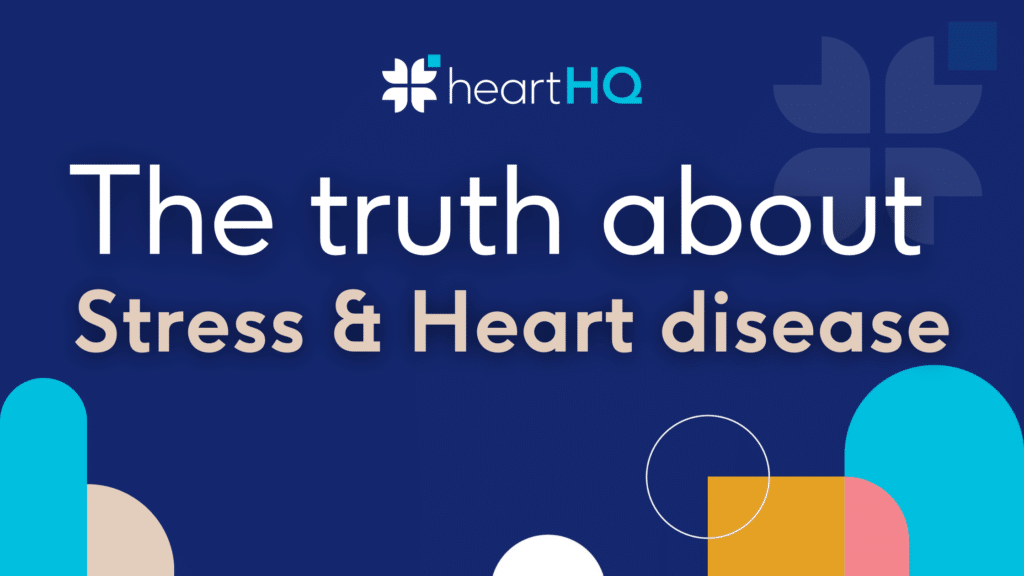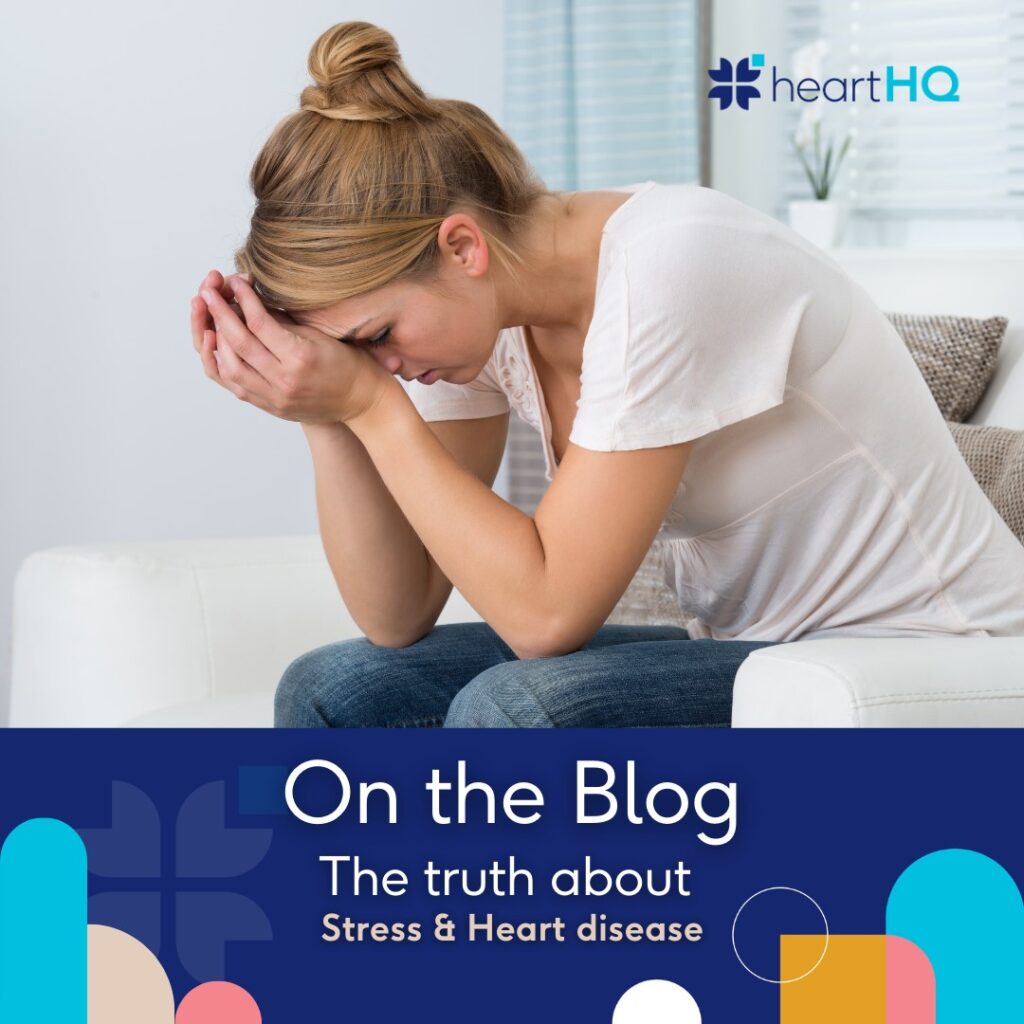
Taking time out to relax and unwind could be one of the best things you do for your heart.
When you think of unhealthy habits that could potentially harm your heart, eating processed foods, a sedentary lifestyle, smoking, drinking too much alcohol and being overweight immediately spring to mind. But there’s another serious risk factor that’s also in your power to change – psychological stress. While we intuitively know that stress isn’t great for our health and wellbeing, science is fast backing this up with some compelling data to show just how harmful it can be.
What science says about stress & heart health
In a recent paper published in JAMA Network Open, researchers tracked the psychosocial stress levels of 118,706 people aged 35 to 70 years without prior cardiovascular disease, over an average follow-up period of a decade. They considered levels of psychological stress at either home or at work, stress from adverse life events (e.g. loss of a job, retirement, marital separation or divorce, bereavement etc) and financial stress. The findings? Higher stress levels were “significantly” associated with mortality, as well as with cardiovascular disease, coronary heart disease and stroke events.
Adding to the evidence, the worldwide INTERHEART study found that work stress, general stress, financial stress and stress from major life events is associated with an increased risk of acute myocardial infarction. Moreover, the study found a “dose response” relationship – that is, permanent stress was riskier for a person’s heart health than periodic stress.
In another study, researchers from Linköping University in Sweden measured levels of the stress hormone cortisol in the months preceding a heart attack, by analysing hair samples, corresponding to one to three months of hair growth. Even after adjusting for other well-known cardiovascular risk factors, such as high blood pressure or blood lipids, diabetes, smoking, a history of heart attacks or a hereditary tendency, high cortisol levels remained a strong risk factor for heart attacks.
How exactly stress impacts your ticker
First up, we know that chronic stress can trigger unhealthy lifestyle habits, like smoking, drinking, poor food choices, decreased exercise and sleep. It can even make you less likely to stick to heart medications, if you’re on them, and less vigilant at getting any medical follow-ups or screening tests done.
However, beyond nudging you closer to unhealthy choices and self-neglect, chronic stress appears to have its own physiological impacts. According to a review published in The American Journal of Medicine, chronic psychological stress can lead to inflammation, increased hypothalamic-pituitary-adrenocortical axis activity, increased peripheral sympathetic nervous system activity and increased sympathetic-adrenal-medullary activity. So, what does this mean for your heart? Well, these processes can in turn lead to increased blood pressure levels, hardening of the arteries, the development of coronary artery disease or even, over time, increased risk of heart attack.
Of course, occasional stress is an unavoidable part of life and in fact, bursts of it can arguably be useful, motivating us to achieve our goals or to reassess if we’re truly happy with the path we’re on. However, what’s certain is that chronic, long-term, poorly managed stress doesn’t do your body, or your heart, any favours.

How to dial down the pressure
*Move more: Exercise is one of the best ways to curb your stress levels, and we know it helps optimise heart health via promoting lower blood pressure, reduced inflammation and a healthy weight. Even a 20 minute power walk every day will make a big difference to your stress levels.
*Foster friendships: Social support and connectedness can enhance our resilience to stress and help foster effective coping strategies. If you’re feeling isolated, try taking up a new hobby, joining a group, volunteering or even looking into group travel providers, to strike up new friendships.
*Tap into mindfulness: Mindfulness is brilliant for promoting inner calm, and good news is there’s loads of ways to cultivate it, beyond the usual options of meditation, yoga and deep breathing. For instance, tuning into all your senses during a walk in nature, doing some mindful colouring or simply being present during a daily activity (like sipping your morning cuppa in the sunshine) all count.
*Reach out for support: If you feel like your stress levels are becoming unmanageable or affecting your ability to live life the way you want to, reach out to your GP for help, or try one of the many free helplines, such as Beyond Blue, MindSpot or MensLine Australia.
Words by Bonnie Bayley
Stay up to date and learn with us by following us on Social Media
Instagram: https://www.instagram.com/_hearthq
Facebook: https://www.facebook.com/hearthqcardiology/
YouTube: https://www.youtube.com/@hearthq7728/videos
Spotify Podcast: https://open.spotify.com/show/43O54rVkh99KquK7Ak5L1a
Website: https://hearthq.com.au/